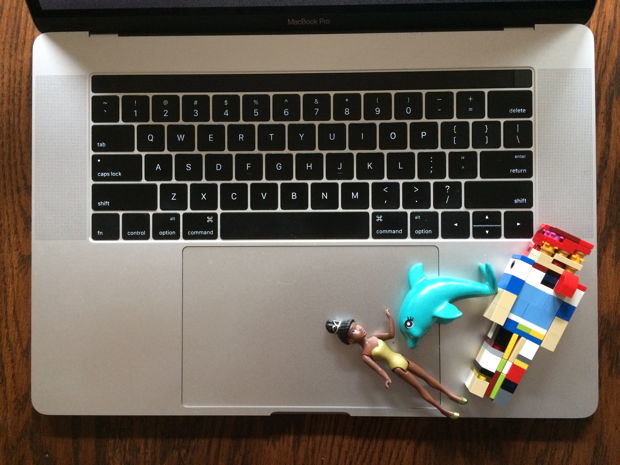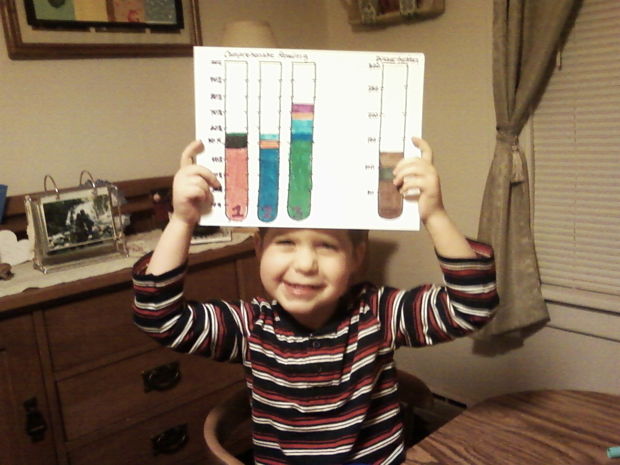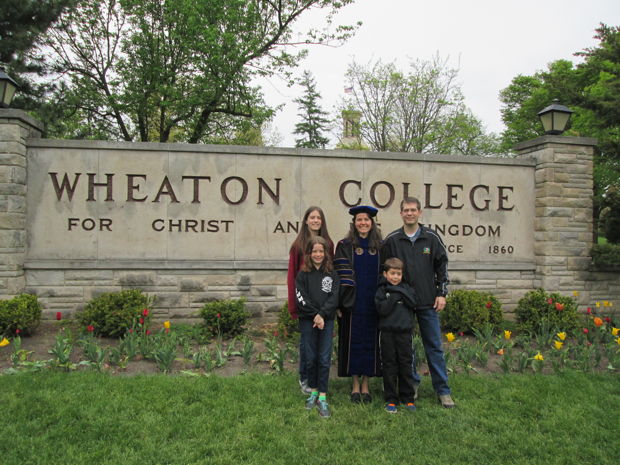
We were staying at a guest house in rural Virginia. I stood talking with the owner while our preschool-aged daughter played nearby. After a time, the owner excused himself, “Well, I should go study for my Sunday school class.” As he walked away, Emma looked at me wide-eyed. Evidently, she’d been listening. In an urgent whisper, she gaped, “I didn’t know misters studied!” In her three years of life she’d seen mama do lots of studying. I was the only academic she knew. I was partway through a Masters in Biblical Studies, enrolling when she was a year old, just after she was weaned. She couldn’t remember a time when mom was not in school. She didn’t know that my occupation was somewhat unusual. I crammed that two-year MA into five years of full-time mothering. For my kids, this was normal.
Before I go on, let’s be honest. You’re reading this because you have questions about your own life journey, not because mine holds inherent interest. Should I go back to school now or wait until the kids are older? Should I wait to have kids until my dissertation is finished? Or until I land a job? Is it possible to pursue my dream of motherhood and academia at the same time? If so, how?
I don’t know. You’ll have to ask someone who knows you and your situation. My story is not a template, it’s just my story. Yours will be different. But if my story lends you courage, then it will have been worth telling.
In some ways, it was a crazy time to start school. Having little ones at home meant that I was already fully occupied. At the time I was homeschooling our oldest daughter for kindergarten, while caring for Emma. But in other ways, it was the ideal time. The girls were still young enough to take naps. I found a program with classes that fell mostly on evenings and weekends, which meant we could avoid paying for childcare. When Emma turned two, we enrolled her in our church’s preschool. I’m sure she benefitted from the loving attention and interactive play. But it was I who reaped the benefit of uninterrupted study time for several hours each morning while both girls were in school. By this time her big sister, Eliana, was in first grade at our local public school.
As busy as coursework made me, I relished the quiet time to think, reflect, and learn at a deeper level than Goodnight, Moon. And caring for the children gave my brain a break and got me out from behind my desk. Between these two vocations, my whole self was engaged.
Partway through seminary, our youngest son was born. I took a year off from formal classes because I preferred not to interrupt breastfeeding. During that year, I studied Hebrew at my own pace so that I could take a competency test and jump back into classes with my peers. By the time he turned three, I had graduated with my MA and we were heading to a new campus in a new state for doctoral work.
This presented new challenges. Back in seminary, I was a stay-at-home mom. During doctoral studies, I didn’t have the luxury of studying part-time. I was required to invest full-time for the first three years. So my husband and I switched roles, divvying up household responsibilities in new ways. I was happy to hand over the grocery shopping, cooking, and cleaning. But I hated to miss anything with the kids. Not only did I enjoy being with them, but my identity was tied tightly to motherhood. We worked out a schedule that allowed me to pick up the girls from school in the afternoons. I was the homework parent, the "how was your day?" parent, the "let’s play a game" parent. I liked this. But because our son was in morning preschool, my husband dropped him off and picked him up each day while I was buried beneath mounds of books in the library. This was a stretch for me. I felt disconnected from his school experience.
One day I arrived at preschool for a special performance. One of the teachers approached me with surprise, “How lovely that you were able to make it!” I smiled, but my heart sank. This was exactly what I was afraid of. They didn’t see the hours I spent with Easton every afternoon and evening. All they knew was that Dad dropped him off and Dad picked him up and Dad packed his lunch and Dad signed his forms. I was the career mom, who they assumed was too busy to attend a school performance. I had to learn to be okay that they saw me that way.
Our three years in doctoral studies were focused. Nearly every minute of the day was spoken for. The pressure was intense. But I honestly think that the kids helped me get through it.

We made a chart for my comprehensive reading and dissertation progress. The kids got to take turns coloring in the thermometers as I made progress. This gave them a vested interest in my success. “Mom, how many pages did you read today?” Without them, I would have had less accountability. I could have easily frittered away my study time on social media or in a thousand other ways, but I knew that each night I’d come home and face my husband, who had slaved away at all the household chores on top of his full-time work-from-home job. It was good for our marriage when I could report some progress toward our goal. After I completed my first chapter, Danny and the kids surprised me at the library with flowers. They were all dressed up and ready to whisk me off to a special dinner.

We all hoped that I would finish in three years, but like many others, I hit a snag and needed more time. We moved back to live near family while I completed my dissertation. Frankly, by this point the kids had lost interest in my work. We had pushed so hard for three years to get to the finish line, but now the end was still a long way off. We had counted pages together, but had not counted on having to re-write those same pages multiple times. I think they lost hope that mom would ever be done with school. But finish I did, two years later, with a very enthusiastic cheering section at graduation.
Having kids before the PhD gave me life experience and motivation to finish. But there are tradeoffs. I gave up on scrapbooking and having themed birthday parties for my kids long ago. I accepted my first full-time teaching position just before my 40th birthday. I have a daughter old enough to be my student. (On the flip side, sometimes she sits in on my classes — and she helped me edit this article!) As long as I stay grounded, this doesn’t faze me. It’s tempting to compare my timeline to someone else’s and wonder what I should have done differently. But I wasn’t living their story, I was living mine.
In his book, Called to Be Saints (IVP, 2014), Gordon Smith cautions us against thinking that we can make vocational decisions in a vacuum. We are not given a blank slate. We do not have the luxury of engineering the ideal scenario. This is our context – this particular life scenario in which we are living out realities beyond our control. We cannot turn back the clock and we cannot speed it up. Whether or not we even have children is ultimately up to God.
My youngest was three years old when I started my PhD program. We were done with the baby stage by then. Others walk a different path: A friend just had her first baby in the final stages of dissertating. Another had her fourth just as she was finishing coursework and beginning her dissertation. A colleague gave birth to her first at the end of her first year of teaching. There are many ways to navigate academia as a mother. Some are well-traveled. Other paths must still be blazed.
I remember meeting nine years ago with an academic dean at an institution where I hoped to someday teach. I brought our youngest along. He was barely a month old, still young enough that his eating schedule was unpredictable. When I arrived at the Dean’s office, Easton began to fuss. In spite of my best efforts to plan otherwise, he was hungry. My best option at that point was to continue the conversation and feed Easton as though that were the most natural thing to do. I fished a blanket out of the diaper bag to provide some privacy and got on with business. I wondered if it was the Dean’s first meeting with a breastfeeding mother. I wondered if it would be my last.
I’ve had very few female role models in this field – almost none who navigated academia with children while I was around to watch. However, I had one male professor whose wife worked unpredictable hours as a flight attendant. After they adopted an infant, he set up a pack-n-play in his office and hired students to babysit during his classes. It was a beautiful model of co-parenting that blazed a new trail for other professors raising young children.
Take courage, friends. Trailblazing is hard work, but the view is worth it.
